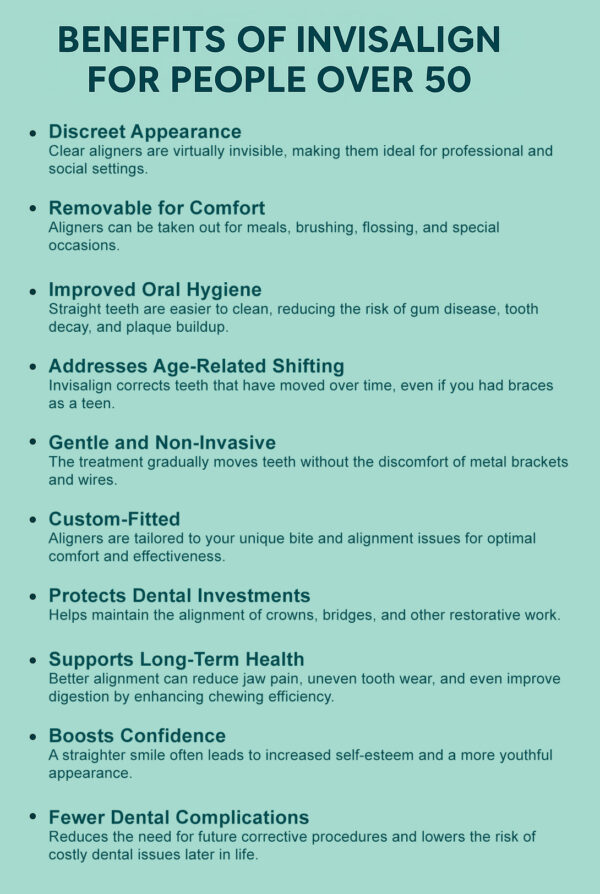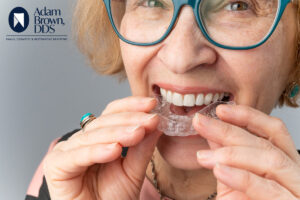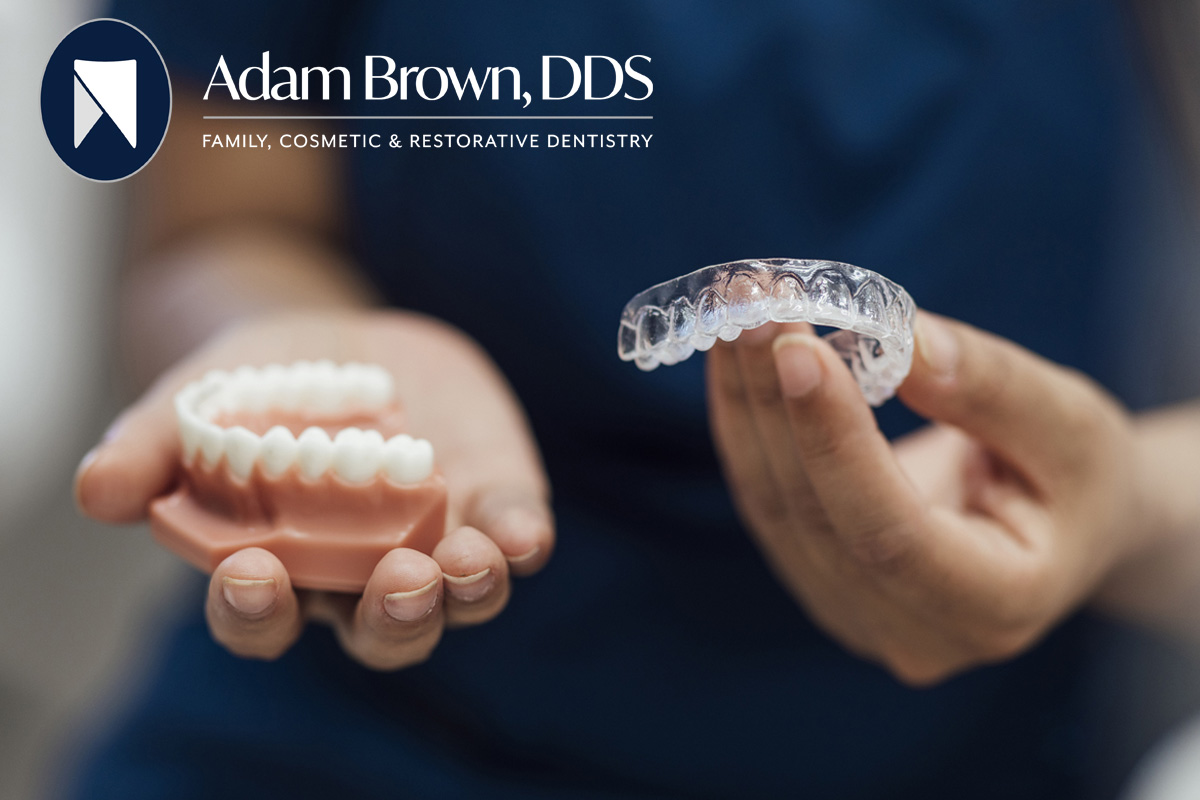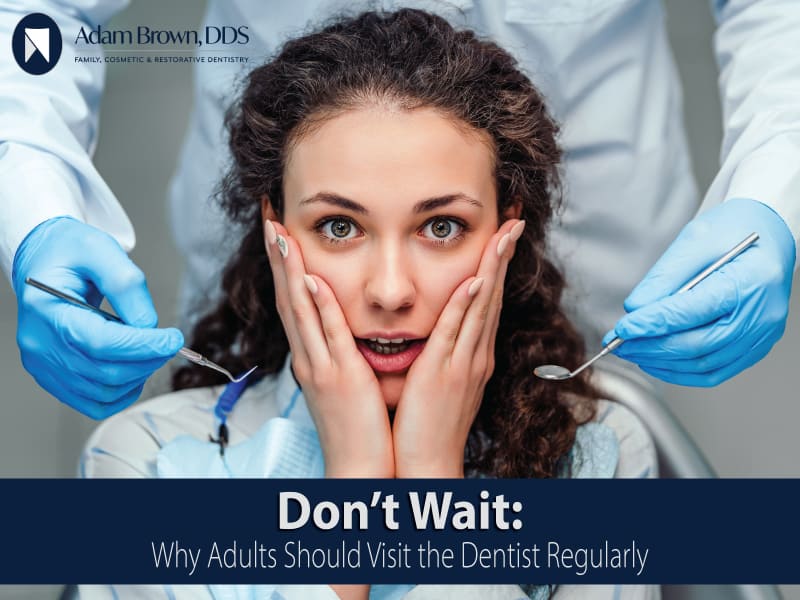How Artificial Intelligence Can Help You Maintain Dental Health and Save Money at the Dentist
We hear about artificial intelligence (AI) almost every day — in our phones, our cars, and even our shopping recommendations. But did you know AI is also transforming the way you care for your teeth? From helping you prevent cavities to saving money on costly dental procedures, AI is changing dentistry for the better.
Learn how AI can help you keep your teeth healthy, catch dental problems early, and save money on dental care at Adam Brown DDS. In this article, we’ll explore how AI can support your dental health, what tools you can use at home, and how modern dental practices — including ours — are harnessing AI to deliver better care for you.
What is Artificial Intelligence, and Why Does It Matter for Your Teeth?
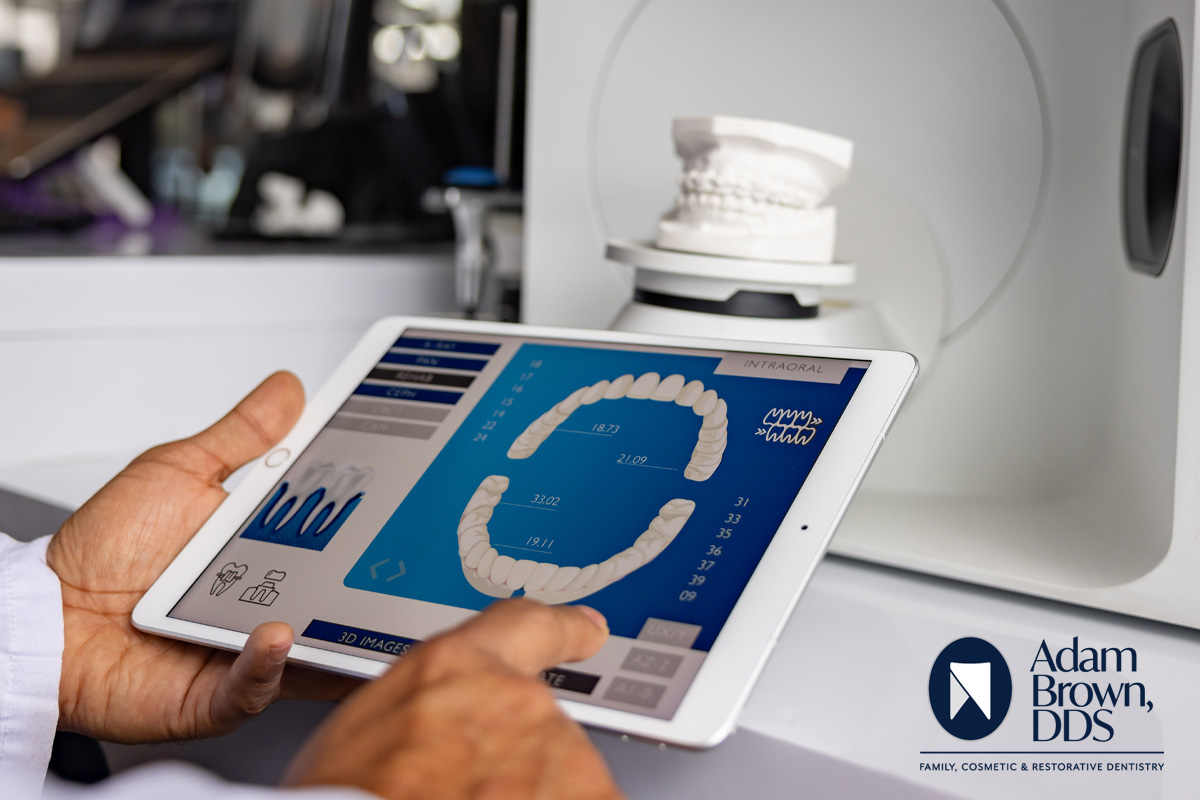
Artificial intelligence (like ChatGPT, Gemini, Claude, Grok) is essentially computer technology that can analyze data, spot patterns, and make decisions — sometimes even better than humans. In dentistry, that means AI can quickly interpret dental X-rays, track changes in your oral health, and help dentists diagnose problems early.
For patients, AI is also becoming part of apps and devices you can use at home to keep your mouth healthy and your dental bills lower. By detecting problems sooner and encouraging good habits, AI can help you avoid the pain and expense of major dental work down the road.
Early Detection and Diagnosis
One of the most promising uses of AI is catching dental problems before they become serious.
AI in Dental X-rays and Imaging
Many dental offices today use AI software to scan X-rays and digital images for signs of tooth decay, infections, or bone loss. These tools can highlight tiny areas of concern that might be hard for the human eye to catch, giving your dentist a valuable second opinion.
Spotting Gum Disease
AI systems can also detect early stages of periodontal (gum) disease by analyzing photos or X-rays of your mouth. The earlier you find and treat gum disease, the less expensive — and less painful — your treatment will be.
In other words, AI helps your dentist be even more thorough, so you can prevent small issues from becoming big, costly problems. Learn more about early detection through routine oral cancer screening that we offer at Adam Brown DDS.
Personalized Dental Care and Risk Forecasting
Did you know your risk of cavities or gum disease is affected by your age, diet, oral hygiene habits, and even genetics? AI can analyze these factors to predict what dental issues you might face in the future.
Risk Assessment
Some emerging tools combine data about your diet, brushing habits, and medical history to estimate your personal risk of developing cavities or gum disease. That information can help your dentist create a preventive plan tailored for you.
Better Prevention
Imagine an app that sends you a message: “Based on your age and brushing patterns, you may want to schedule a cleaning soon to protect against gum recession.” That’s AI working as a personal dental coach, nudging you to take action before problems arise.
Supporting Good Nutrition for Healthy Teeth
What you eat has a huge impact on your teeth and gums. Sugary snacks and acidic foods can damage enamel, while foods rich in calcium and vitamin D can help keep your teeth strong.
AI Nutrition Coaches
Today, there are AI-powered nutrition apps that can help you track what you eat, analyze its impact on your dental health, and suggest healthier options. For example, if you log a lot of soda or candy, the app might remind you to rinse with water or brush afterward.
Personalized Diet Advice
Some AI systems even analyze your health records to recommend foods that support stronger enamel and reduce inflammation in your gums. That kind of personalized guidance can protect your teeth and cut down on the risk of future dental bills.
At-Home Oral Health Coaching
Most people know they should brush twice a day and floss once a day — but sometimes life gets busy. AI can help you stay on track.
Smart Toothbrushes
There are toothbrushes on the market today that use AI to monitor your brushing habits. They can detect if you’re missing certain spots, brushing too hard, or not brushing long enough. Then, they give you real-time feedback through a smartphone app.
Brushing Reminders
Other AI apps can remind you to brush, floss, or use mouthwash based on your schedule. These gentle nudges build healthier habits over time, which can save you money on fillings and deep cleanings later. These are great for children because it creates a fun game for maintaining dental health.
Checking for Problems
Some emerging AI apps even let you use your smartphone camera to scan your mouth for signs of swelling, discoloration, or other early warnings of dental issues. While they don’t replace a dentist’s exam, they can prompt you to book a visit before things get worse. Check out our patient resources for more ways to keep up with your dental care at home.
Keeping Track of Your Dental Records
All Your Dental Data in One Place
AI tools can securely store your dental records, including treatment plans, X-rays, and insurance information. That makes it easier to share your dental records if you change dentists, move to another city, or see a specialist.
Smart Scheduling and Insurance Tracking
AI-powered systems can also remind you about upcoming appointments, track your dental insurance benefits, and even estimate what your share of treatment costs might be. This helps you plan financially, avoid missing checkups, and keep your teeth in top shape without unpleasant surprises.
Helping People With Dental Anxiety
It’s no secret that many people get nervous about visiting the dentist. Some patients avoid appointments altogether, which usually leads to more severe (and more expensive) dental problems later.
AI Chatbots and Virtual Coaches
AI-powered chatbots can help calm dental fears by answering questions and providing reassurance 24/7. These systems can explain procedures in simple language and guide patients through what to expect at a dental visit.
Reducing Stress Before Your Appointment
Some AI mental health apps can teach relaxation techniques or breathing exercises to help you manage dental anxiety. When patients feel calmer, they are more likely to stick with their regular checkups — saving money and protecting their smile. Learn how we support patients with comfort dentistry to help ease dental anxiety.
Saving Money by Catching Problems Early
The biggest benefit of AI for patients may be its ability to save you money. When you find dental problems early — whether it’s a small cavity or the first signs of gum disease — treatment is faster, simpler, and far less expensive.
For example, filling a small cavity might cost under $200, but if decay progresses and you need a crown or root canal, you could be looking at $1,000 or more. AI helps spot those problems before they reach that stage, preserving both your health and your budget.
What AI Can’t Do (Yet)
AI is amazing, but it still can’t:
🚫 Perform cleanings or procedures
🚫 Replace a dentist’s skill and experience
🚫 Diagnose conditions on its own, without a dental professional confirming
Think of AI as a helpful assistant, not a replacement for your dental team.
The Bottom Line: Your Dentist + AI = Better Oral Health
Artificial intelligence is revolutionizing the world of dentistry, making it easier for you to stay on top of your dental health and save money on treatment. From early diagnosis and personalized risk assessments to smart toothbrushes and appointment reminders, AI is your partner in a healthier smile.
At Adam Brown DDS, we believe combining proven dental care with modern technology is the best way to serve our patients. If you’d like to learn more about how we use advanced tools — including AI-supported diagnostics — to keep your mouth healthy, contact our office today. We’re here to answer your questions and help you protect your smile for years to come.



